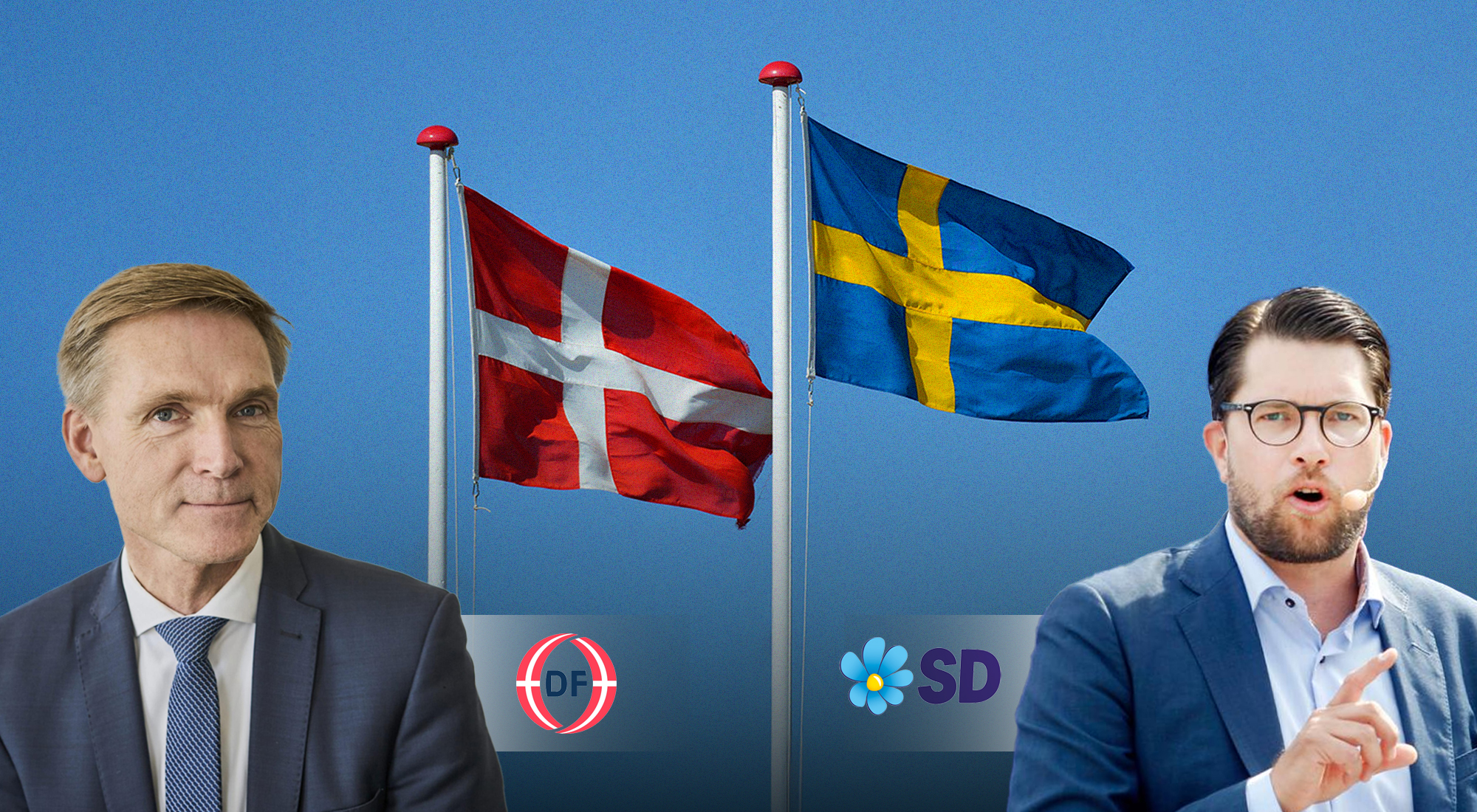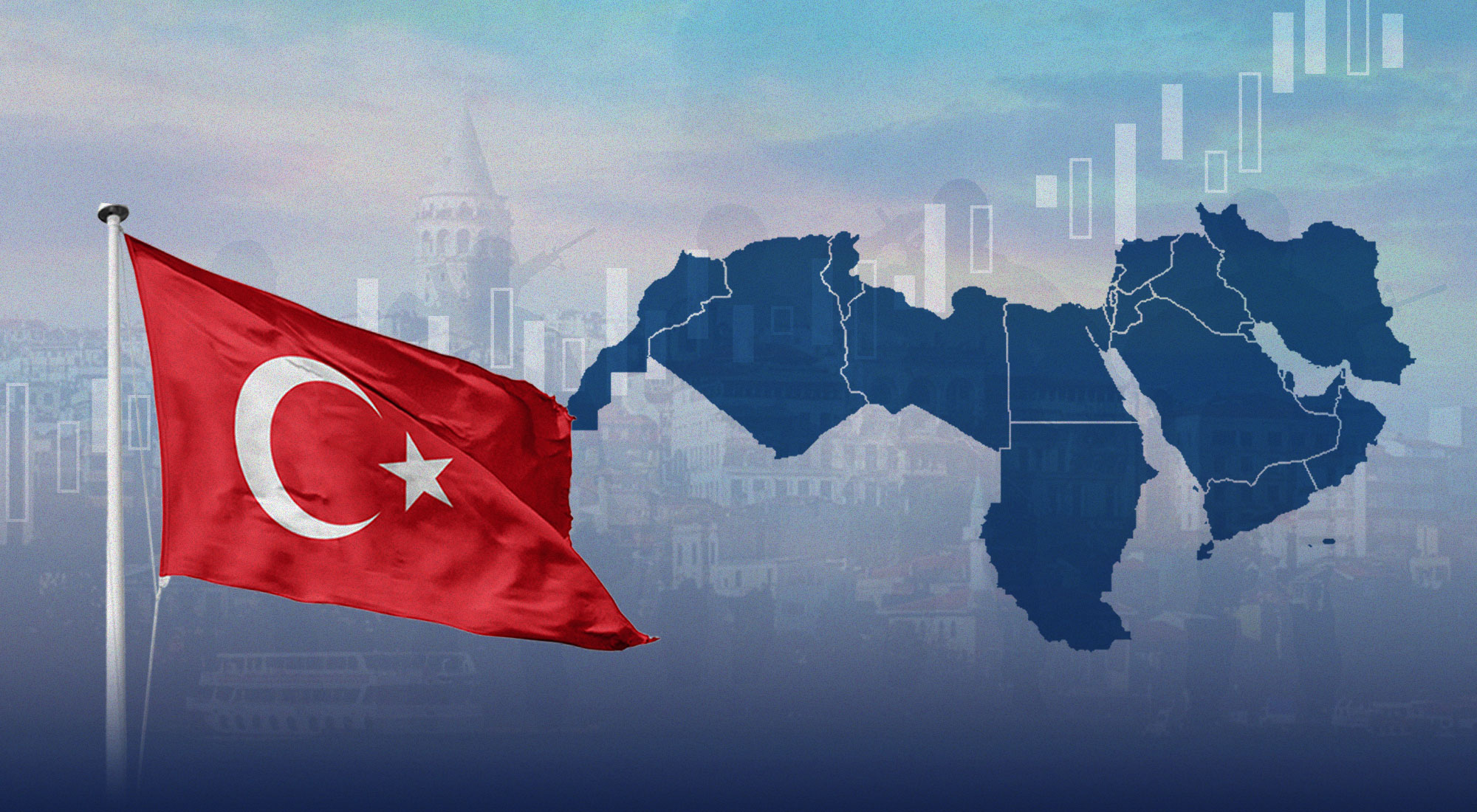The European populist right has grown in influence, both formally and informally, since 2009.[1] This paper seeks to understand and explore the growth of such influence, specifically in Scandinavia, as it presents a unique paradox. The region is renowned for its strong social democratic traditions and an albeit romanticized perception as a beacon of harmony, progress, equality, and inclusivity.
The terms “far-right” and “right-wing populism” are used for the same purpose in this context, to differentiate from the mainstream right,[2] which arose following the financial crash of 2008. The traditional right that dominated the West throughout the 20th century was characterized by free-market economics, whereas the parties discussed in this paper represent a definitive break from this and the emergence of a populist age.
This new brand of political party is defined by anti-elitism, nationalism, disregard for liberal values, nativism, and Euroscepticism.[3] It also involves the creation of “in” and “out” groups, where right-wing populist parties (RWPP) justify the exclusion of the “out” group, usually in the form of immigrants.[4] The central factor dissected in this paper is the role of welfare in Scandinavian countries and, subsequently, “welfare chauvinism,” which distinguishes countries like Denmark and Sweden in the pan-European trend.
The paper focuses on case studies of RWPP in Sweden and Denmark, examining the influence of cultural and economic factors on their rise. These findings will then be contextualized within broader European behavior and concluded with a discussion of the challenges these developments pose for social democracy.
Case Studies
Sweden
The first case discussed is Sweden. The Sweden Democrats (SD) have been the primary RWPP since 2010, gradually increasing their national vote share in the national Parliament from 5.7% in the 2010 election to 20.6% in the 2022 election, becoming the second-largest party.[5] Throughout the Tidö Agreement, they gained substantial influence due to their role in supporting the coalition. Tangibly, they were able to push for stricter immigration laws, reducing the intake of asylum seekers to the EU’s minimal level.[6] Despite this, in terms of tangible achievements, there is little else to show for their time in government, as seen with many other brands of RWPP when they come into power.
Initially a neo-Nazi party, they distanced themselves from their extremist roots, allowing them to enter Parliament and pressure mainstream parties to address their issues. However, during their time in government, they faced the same level of internal conflict as the parties they claimed to be distinct from. Their key desires are centered around alienating migrants and giving precedence to native Swedes. Like most RWPP, they advocate for a significant cut in immigration, express complete opposition to multiculturalism, and emphasize adherence to Swedish norms.[7] Alongside framing migrants as a cultural intrusion, they are able to emphasize the economic threat by proposing the restoration of the welfare state to be financed by the reduced economic burden of immigration.
This displays the acute manifestation of welfare chauvinism, the political notion that welfare benefits should be restricted to certain groups, mainly natives of the corresponding nation, as opposed to immigrants.[8] The concept is not exclusive to Sweden or Scandinavia but has distinct relevance in these countries.
Denmark
The makeup of RWPP across the political spectrum is slightly different. While the Danish People’s Party (DPP) was dominant in this brand of politics from the 1990s up until 2019, peaking at 21% of the vote and second in Parliament in 2015, its support withered to 2% in 2022.[9] The Denmark Democrats overtook them in 2022 with 8% of the vote.[10] Given that the DPP has more history and influence on Denmark’s political sphere, my focus remains on them. Like the Sweden Democrats, the DPP opposes immigration, particularly from Muslim-majority countries, arguing it threatens their cultural values. They are notably not economically right-wing; their positioning strongly emphasizes the prioritization of welfare benefits for Danish citizens and opposition to shrinking the state.
In these Scandinavian countries, there is a broadly settled consensus on the importance of a strong welfare state. Immigration is seen as threatening this in two ways: by placing a strain on public resources and by challenging the idea that welfare policies are interwoven with the preservation of Danish cultural values and identity, to which immigrants are perceived as alien. This is further evidenced by the collapse of another Danish populist party, the New Right. They challenged the DPP with anti-immigration and nationalist policies combined with a more libertarian position but failed to gain significant traction in vote share and dissolved in 2024,[11] demonstrating the necessity of integrating the rootedness of social democratic values in Danish society into their policy platform.
Populist parties in Denmark and Sweden carve a distinct niche into the political landscape, blending aspects of left- and right-wing politics within a settled collective opinion. Analyzing these parties reveals that the libertarian strand often associated with RWPP does not resonate with the Danish or Swedish populations. Instead, these parties integrate cultural values with their countries’ economic structures, linking social trust and cohesion with a welfarist culture.
Cultural and Economic Anxieties
Paramount to the rise of RWPP in Scandinavia, and across Europe, has been the exploitation of cultural anxieties and challenges to national identity related to immigration. The prevalent concept relevant here is ‘symbolic racism,’ which underpins the idea of ethnic or national superiority—asserting that one’s culture, values, and way of life are superior.[12] Concurrent with this. Concurrently, certain racial and ethnic groups are deemed incompatible with such cultural values. This perception is often used to legitimize racially discriminatory practices and rhetoric. As with other unique aspects of right-wing populism in Scandinavia, the perception of inferiority is distinctive.
As discussed, the roots of social democracy are deeply embedded in Scandinavian discourse and values. The generosity of their welfare system is built on a collective trust that it won’t be abused. This is especially significant in societies known for their high levels of social trust and cohesion. Thus, balancing these complex factors with growing cultural diversity presents a challenge for countries like Denmark and Sweden.[13] For RWPP, this becomes an easy point of contention, allowing them to claim that they are restoring value to the native population.
The situation of cultural conflict is more pronounced in Scandinavia because these nations have remained largely homogenous longer than comparable Western European countries like Germany, the UK, and France. Lower levels of immigration[14] in the past have led to a more sudden and rapid demographic change. This is particularly relevant as RWPP stress an inherent value in homogeneity and the need for countries to preserve their unique character.[15] In these nations, the value of uniqueness is often focused on the successful structure of the country for their citizens’ benefit.
Building on the idea of cultural conflict and intrusion, these allegations often target Muslims.[16] To escape claims of blatant racism, RWPP frequently portray Islam and Muslims as the central threat, presenting religion as diametrically opposed to Western culture and way of life. This can be further emphasized by linking migration to security concerns. Post-9/11, associating Muslims with security threats[17] has become steadfast and politically accepted. The ability of RWPP to frame migrants, particularly Muslims, as an alien and dangerous group has resonated strongly with parts of the electorate, even among those with more general concerns about immigration and integration.
The other key aspect that has enabled the rise of RWPP in Scandinavia has been economic insecurity and welfare chauvinism. The insecurity and subsequent social deprivation faced by the lower classes across Europe have fueled resentment of the political class.[18] The 2008 financial crash is marked as the turning point for this; in Sweden, layoffs among low-skilled workers during the crisis notably raised the Sweden Democrat vote share in areas with a high volume of such workers.[19]
As established earlier, the welfare chauvinist notion of “our own people first” is a common narrative projected by these parties. It provides a more palatable approach to justify the exclusion of immigrants. In Sweden and Denmark, many are not primarily opposed to immigrants out of xenophobia but out of concern that they have not been raised with the cultural values that uphold and respect their generous welfare system.[20] Those who are not born in the country of generosity are not naturally deemed part of the social fabric and are, in a sense, “contractually obliged” to fulfill the expectations of such a system.
The Danish People’s Party has shaped a form of welfare nationalism that ties national identity to welfare state benefits. This creates a perception that welfare is an entitlement reserved for natives, undermining the high-trust social generosity and appreciation that traditionally define the system.
Wider European Trends
The 2008 crash was a turning point for the rise of RWPP. Parties like the Sweden Democrats and the Danish People’s Party have existed since the 1990s, but their increasing presence in parliaments has been notable post-2008.[21] The economic hardship that followed, mainly in the form of austerity and high unemployment, eroded trust in many political parties and institutions and intensified anti-globalization sentiment[22]—giving many RWPP greater power to link issues to increasing migration. The widespread dissatisfaction with mainstream parties and their association with the establishment that facilitated the crash enabled the emergence of a new brand of politics to the left and right. Since the turn of the century, immigration, globalization, and European integration have reshaped Europe, while the stability of blue-collar work has drastically declined,[23] thus, making a form of protest politics somewhat inevitable.
Many fear the combination of increased migration, European integration, and globalization is diluting national identity. This concern is particularly prevalent in smaller countries such as the Netherlands.[24] It links to the concept of ethno-pluralism, propagated by RWPP, notably in countries like France, Austria, and Denmark, emphasizing the need to keep ethnicities separate to preserve their unique character. In Scandinavia, however, RWPP often claim that their nations’ unique character is closely tied to the high-trust nature of their welfare system. Marine Le Pen in France often echoes similar claims of welfare chauvinism, asserting that immigration is draining public services, though she usually places more focus on job competition and increased native unemployment.[25] A feature prevalent across all RWPP is the singling out of Muslim immigrants. By constructing a cultural barrier, these parties tap into the sentiments of people who may not oppose migration broadly but hold specific cultural prejudices. This is evident in how many countries legislate specifically against Muslim practices, framing it as a defense of the native way of life. For example, the Danish People’s Party has banned religious symbols such as hijabs,[26] and the Dutch Freedom Party has proposed banning mosques.[27] Reaction has been mixed, with many claiming it constitutes an infringement on personal rights and religious freedom—particularly in the Netherlands—arguing it amounts to government-sanctioned Islamophobia.[28] Yet, there remains a minority to whom these policies appeal: those who have been persuaded to believe that secularism and integration are fundamental issues in society.
Ideological Conflict
The key question, returning to the focus on Scandinavia, is how the convergence of social democratic values and right-wing populism occurs. Increased economic precariousness is fundamental to this. Facilitated by globalization, economic downturns are increasingly uncontrollable, leaving many feeling that they are not benefitting from the welfare state as they once did. Thus, if the relative economic and social position of society has deteriorated, coupled with a loss of faith in the political establishment, the rise is inevitable regardless of the perceived generosity of the state.
It reflects the volatility in politics globally. The rise in RWPP has enabled a significant breakdown in the traditional spectrum of left/right politics; there is no longer a strict or tight alignment. The DPP and SD, along with many similar European parties, are not encompassed by a neo-liberal core but by social exclusion and cultural conflict. By focusing on these issues, RWPP shift the political agenda that was once defined by economics.
Scandinavia’s unique political culture stresses egalitarianism and social cohesion, in contrast to Italy or France, with more openly hostile and tense divisions. As such, the differences between comparable parties in rhetoric are substantial, demonstrating how they cater to relevant populations. RWPP in Scandinavia have framed the debate by asserting that their well-functioning, progressive, generous social democratic systems are under threat by migration, rather than claiming that the country is already ruined by immigrants.
The positioning of non-European immigrants as backwards, especially Muslims, creates the idea that there is an increasing threat to their progressive way of life, often in gender policies,[29] from the often deeply socially conservative brand of RWPP.
The Challenges for Social Democracy: Scandinavia and Beyond
Prior to surges from RWPP, the welfare state was not viewed as a system of finite resources to be fought over. The DPP and SD have successfully shifted this perception among voters. A key theme from these findings is the necessity for mainstream parties to challenge the narratives posed by these parties. Allowing RWPP to dictate the framing of the debate concedes control and strengthens their position.
The financial crash left many disillusioned and battling economic inequalities. To address this, it is crucial to ensure citizens feel valued and not alienated by reinvesting in social services and strengthening democratic institutions.[30] Targeting the demographic that leans towards RWPP is important. Introducing job creation programs and support for struggling industries can help limit the appeal of populist rhetoric.[31] Part of the anti-establishment sentiment fueling this form of populism stems from a deep mistrust of politicians’ ability to deliver on their promises. Broad statements about economic growth and investment can further alienate these voters, highlighting the need for targeted economic policies addressing specific concerns.
Listening to the grievances of those who gravitate towards RWPP is essential. Many mainstream parties have dismissed these voters, often labeling their concerns as simply racist or inflammatory. While some views may fall into this bracket, this approach overlooks legitimate feelings of alienation from government. Ignoring these grievances risks deepening disenfranchisement and pushing them further towards populist forces.
It is also necessary to counter misinformation and fake news, which often fuels populist movements. For example, the DPP recently released a video falsely depicting the Prime Minister announcing that Christmas would be replaced by Eid; it was later revealed as an AI deep fake.[32] Exposing and regulating such methods is a necessary step to discredit their positions.
This issue ties into the need for greater transparency in government. RWPP often portray the establishment as self-serving and secretive, reinforcing the perception that elites work against the people. To counter this narrative, it is essential to demonstrate its falsehood through increased transparency and openness.
One tangible step could be the introduction of citizens’ assemblies. These have been trialed recently in Germany and could help rebuild trust in democracy and address voter dissatisfaction.[33] By gathering a microcosm of the population and presenting them with accurate, well-researched information from experts, the misinformation prevalent online can be counteracted. This approach allows for understanding diverse perspectives outside politically fueled arguments, reducing the echo chamber effect that fosters populist leanings.
Conclusion
This analysis reveals the intricate nature of right-wing populism in countries with distinct socio-economic models, such as Sweden and Denmark, while reflecting on the wider trends of this political phenomenon across Europe. The niche presented by the Sweden Democrats and the Danish People’s Party lies in the interplay between cultural identity and the welfare system, deeply rooted in social trust and cohesion within their previously homogenous societies. This has created a unique environment for this brand of populism and a substantial challenge for traditional political actors.
As with other European countries, RWPP have succeeded in capitalizing on economic insecurities and framing the cultural threats of migration as an attack on natives. Although these parties may currently be experiencing a decline in Denmark and elsewhere, they remain a potent political force and should not be underestimated. They have experienced peaks and troughs over the past fifteen years but show no signs of defeat.
As discussed, to counteract the continued influence of these parties, it is crucial that mainstream parties confront these narratives directly. In fear of these parties, it may be tempting to concede ground by offering diluted versions of their policies. However, this approach lends them undue credibility, entrenching their position in the political landscape. The focus must be on tackling these issues at their root and presenting a strong, principled argument, rather than simply reacting to populist rhetoric.
[1] Silver, L. “Populists in Europe – Especially Those on the Right – Have Increased Their Vote Shares in Recent Elections.” Pew Research Center, October 6, 2022. https://www.pewresearch.org/short-reads/2022/10/06/populists-in-europe-especially-those-on-the-right-have-increased-their-vote-shares-in-recent-elections/.
[2] Art, D. Inside the Radical Right: The Development of Anti-Immigrant Parties in Western Europe. Choice Reviews Online 49, no. 10 (2012): 5913. https://doi.org/10.5860/choice.49-5913.
[3] Akkerman, T. Radical Right-Wing Populist Parties in Western Europe: Into the Mainstream? Routledge, 2016.
[4] Emmanouilidis, J., Grabbe, H., Lochocki, T., Mudde, C., Schmidt, J., Fieschi, C., et al. The Populist Challenge to Foreign Policy. European Policy Centre, 2016. https://www.epc.eu/content/PDF/2016/Europe_s_troublemakers_complete_book.pdf.
[5] Silver, L. “Populists in Europe – Especially Those on the Right – Have Increased Their Vote Shares in Recent Elections.” Pew Research Center, October 6, 2022. https://www.pewresearch.org/short-reads/2022/10/06/populists-in-europe-especially-those-on-the-right-have-increased-their-vote-shares-in-recent-elections/.
[6] Ritter, K. “Swedish Election: The Astonishing Rise of the Right-Wing Sweden Democrats.” DW, 2022. https://www.dw.com/en/swedish-election-the-astonishing-rise-of-the-right-wing-sweden-democrats/a-63100694.
[7] Bo’, E. D., Finan, F., Folke, O., Persson, T., & Rickne, J. “Economic and Social Outsiders but Political Insiders: Sweden’s Populist Radical Right.” The Review of Economic Studies 90, no. 2 (2022). https://doi.org/10.1093/restud/rdac037.
[8] European Center for Populism Studies. “Welfare Chauvinism.” Accessed n.d. https://www.populismstudies.org/Vocabulary/welfare-chauvinism/.
[9] Statista. “Denmark: Parliament Election Results, by Share of Votes 2015–2019.” Statista, 2019. https://www.statista.com/statistics/572288/parliament-election-results-in-denmark-share-of-votes-by-party/.
[10] Statista. “Denmark: Election Results Parliamentary Election 2022.” Statista, 2022. https://www.statista.com/statistics/1343883/share-votes-parliamentary-election-denmark-2022/.
[11] Bailey-Morley, A., & Kumar, C. “The Rise of the Far Right in Denmark and Sweden – and Why It’s Vital to Change the Narrative on Immigration.” ODI: Think Change, 2022. https://odi.org/en/insights/the-rise-of-the-far-right-in-denmark-and-sweden-and-why-its-vital-to-change-the-narrative-on-immigration/.
[12] Kinder, D. R., & Sears, D. O. “Prejudice and Politics: Symbolic Racism Versus Racial Threats to the Good Life.” Journal of Personality and Social Psychology 40, no. 3 (1981): 414–431. https://doi.org/10.1037/0022-3514.40.3.414.
[13] Judis, J. B. The Populist Explosion: How the Great Recession Transformed American and European Politics. Columbia Global Reports, 2016.
[14] Statista. “Immigration in Nordic Countries.” Statista, 2022. https://www.statista.com/statistics/1296469/immigration-nordic-countries/.
[15] Rydgren, J. “Immigration Sceptics, Xenophobes or Racists? Radical Right-Wing Voting in Six West European Countries.” European Journal of Political Research 47, no. 6 (2008): 737–765. https://doi.org/10.1111/j.1475-6765.2008.00784.x.
[16] Abbas, T. Islamophobia and Radicalisation: A Vicious Cycle. Oxford University Press, 2019.
[17] Fahmy, D. “The Islamic Tradition and the Human Rights Discourse: The Rise of the Alt-Right: Understanding the Sociocultural Effects of Mainstreaming Anti-Muslim Sentiment.” Atlantic Council, 2016. https://www.atlanticcouncil.org/wp-content/uploads/2018/09/12_Rise_of_Alt_Right_-_Fahmy_-_Islam_and_Human_Rights_Report.pdf.
[18] Jacobs, E. “The Politics of Economic Insecurity.” Brookings Institution, 2007. https://www.brookings.edu/wp-content/uploads/2016/06/jacobs20070913.pdf.
[19]Dehdari, S. H. “Economic Distress and Support for Radical Right Parties—Evidence from Sweden.” Comparative Political Studies 55, no. 2 (2021). https://doi.org/10.1177/00104140211024301.
[20] Judis, J. B. The Populist Explosion: How the Great Recession Transformed American and European Politics. Columbia Global Reports, 2016.
[21] Ibid.
[22] Ozturk, I. “Populist Attacks on Institutions as a Reaction to Hyper-Globalization.” Populism & Politics, European Center for Populism Studies (ECPS), 2021. https://doi.org/10.55271/pp0003.
[23] Art, D. Inside the Radical Right: The Development of Anti-Immigrant Parties in Western Europe. Choice Reviews Online 49, no. 10 (2012): 5913. https://doi.org/10.5860/choice.49-5913.
[24] “Rethinking National Identity in the Age of Migration.” European Website on Integration, 2021. https://migrant-integration.ec.europa.eu/library-document/rethinking-national-identity-age-migration_en.
[25] McMahon, S. “The Politics of Immigration During an Economic Crisis: Analysing Political Debate on Immigration in Southern Europe.” Journal of Ethnic and Migration Studies 44, no. 14 (2017): 2415–2434.
[26] Religious Freedom Institute. “Denmark’s Recent ‘Burqa Ban’ – Unnecessary, Counterproductive, and Hypocritical.” Religious Freedom Institute, September 12, 2018. https://religiousfreedominstitute.org/denmarks-recent-burqa-ban-unnecessary-counterproductive-and-hypocritical/.
[27] “What Geert Wilders’ Victory Means for Dutch Society.” BBC News, November 25, 2023. https://www.bbc.com/news/world-europe-67526768.
[28] Grieshaber, K. “Denmark Proposes Law Making It Illegal to Desecrate the Quran and Other Holy Texts.” AP News, 2023. https://apnews.com/article/denmark-desecration-law-holy-texts-quran-931120e5463a3e15c372a13c862aa775.
[29] Siim, B., & Meret, S. “Right-Wing Populism in Denmark: People, Nation and Welfare in the Construction of the ‘Other.’” In The Rise of the Far Right in Europe, 109–136. Palgrave Macmillan, 2016.
[30] Ibid.
[31] Halikiopoulou, D., & Vlandas, T. “What Is New and What Is Nationalist About Europe’s New Nationalism? Explaining the Rise of the Far Right in Europe.” Nations and Nationalism 25, no. 2 (2019): 409–434. https://doi.org/10.1111/nana.12515.
[32] Hofverberg, E. “Denmark: Majority of Parties in Parliament Agree to Rules on Deepfake Content.” Global Legal Monitor, Library of Congress, June 30, 2024. https://www.loc.gov/item/global-legal-monitor/2024-06-30/denmark-majority-of-parties-in-parliament-agree-to-rules-on-deepfake-content/.
[33] Atlantic Council. “Can Citizens’ Assemblies Help Counter a Rising Populist Tide in the West?” Atlantic Council, August 2024. https://www.atlanticcouncil.org/blogs/new-atlanticist/can-citizens-assemblies-help-counter-a-rising-populist-tide-in-the-west/.







